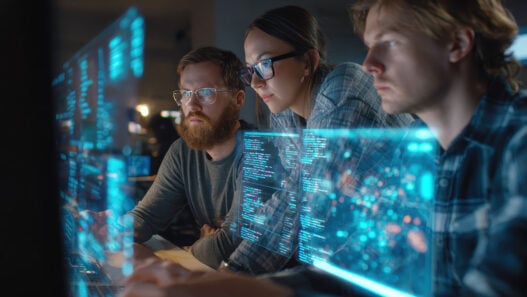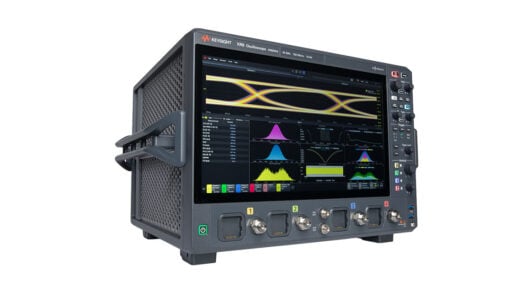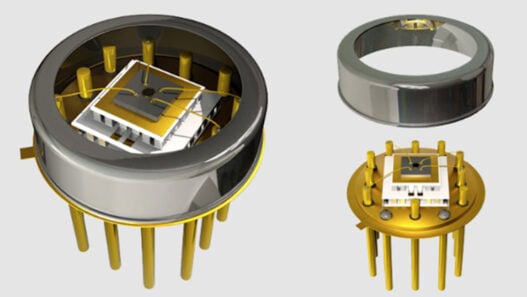What’s new
The third installment of NXP Semiconductor’s HoverGames Challenge dives into the world of vision with artificial intelligence (AI) and machine learning, inspiring developers to deliver breakthrough ideas for making our connected world better, safer, and more secure.
The goal of this year’s HoverGames is to challenge developers to create solutions for a more sustainable food ecosystem. The competition will provide contestants with exclusive early access to NXP’s NavQPlus companion computer, which incorporates the i.MX 8M Plus applications processor with integrated neural net processor for machine learning acceleration and ROS2 enablement for building drones and rovers with more intelligence and decision-making capabilities.
In addition, Bosch Sensortec will support the competition by providing smart sensing solutions for the NXP HoverGames developer kits, including the BME688 gas sensor with AI and the BMI088, a high-performance inertial sensor. A special Bosch Sensortec Sustainability Award will honour the most effective sensor-based solution that pursues sustainability goals.
Why it matters
Humanity’s growth and success over the last few thousand years is arguably due to our ability to feed ourselves. But the world’s population is still growing fast, which means we need to produce more food. Whether it’s shifting cultivation in the tropics, commercial grain farming in Europe, or tea plantations in Asia, we need to make all the different types of farming, food production and its supply chain as efficient as possible, without damaging habitats and the diversity of nature.
We also need to meet new demands for organic food, while considering the millions of people who rely on the food industry for their incomes. Innovative use of technology is essential to meet these challenges. Because of this, NXP HoverGames Challenge 3 invites the global developer community to show how drones and rovers can help make our food ecosystem more sustainable.
“Innovation is a driving force in the fight against climate change,” said Dr. Ralf Schellin, Vice President and Head of Product Area MEMS at Bosch Sensortec. “That is why we are excited to collaborate with NXP on the NXP HoverGames, which provide a great opportunity to tackle real-world social and environmental problems and enable cross-industry collaboration.”
“Innovation and sustainability need to go hand in hand,” said Iain Galloway, Mobile Robotics, Drones and Rovers, Program Lead Engineer at NXP. “We are excited that Bosch Sensortec is supporting this year’s NXP HoverGames with their AI-enabled gas sensor and offering the special Sustainability Award. Together, we are helping to inspire the incredible and creative community we are all a part of, and engineer solutions that will benefit society and the planet.”
More details
The innovative ways to use drones and rovers to support sustainable food production have yet to be engineered. The application could be in a desert, over the oceans, or in a tropical rainforest. Alternatively, it could focus on our changing climate and how it might affect food production or protect animals and insects to better maintain biodiversity.
The drone and rover developer kits include all the necessary components to get the projects up and running, including a motor, ESC, servo, flight controller, and GPS. The open-source PX4.org flight stack allows developers to support the flight management unit (FMUK66).
Additional components include theNavQPlus, which is equipped with NXP’s i.MX 8M Plus applications processor and incorporates ROS2 enablement, allowing developers to bring their machine learning workloads right to the edge.
The on-chip Neural Processing Unit (NPU) computing performance of up to 2.3 trillion operations per second (TOPS) effectively handles intelligent driving and image recognition tasks.
The NXP eIQ machine learning software development environment, which includes a workflow tool, inference engines, neural network compilers, and optimised libraries, allows developers to create complete system-level applications with ease. Additional options for the developer kit include the NXP T1 Ethernet switch and UCANS32K146 UAVCAN node boards.
The developer kits also include Bosch Sensortec’s BME688, the first gas sensor with artificial intelligence (AI) and integrated high-linearity and high-accuracy pressure, humidity and temperature sensors.
The compact and low-power sensor can detect a broad range of gases in the part per billion (ppb) range. The gas scanner can be customised for sensitivity, selectivity, data rate, and power consumption and trained to a specific application using the Bosch BME AI-Studio tools.
Thanks to the fully computational process of the AI Studio server, it is possible to dynamically collect data from all sensors in the field, to retrain and continuously improve the algorithm. For example, in a drone or rover application, the BME688 could detect the presence of volatile organic (VOCs) or sulfur (VSCs) compounds as an indicator for air quality, emissions or bacteria growth in food crops.
How to get involved
Apply your amazingly creative and innovative ideas to help achieve a sustainable food ecosystem.
Sign up to be among the first to be notified when the NXP HoverGames Challenge 3 opens for registration.
For tutorials, hints and tips, troubleshooting, and more, visit the NXP HoverGames gitbook. Bookmark HoverGames.com for entry and prize details, webinars and online support, and submit the required application before November 6th, 2022. The competition closes February 19th, 2023, and winners will be announced on March 9th, 2023.







